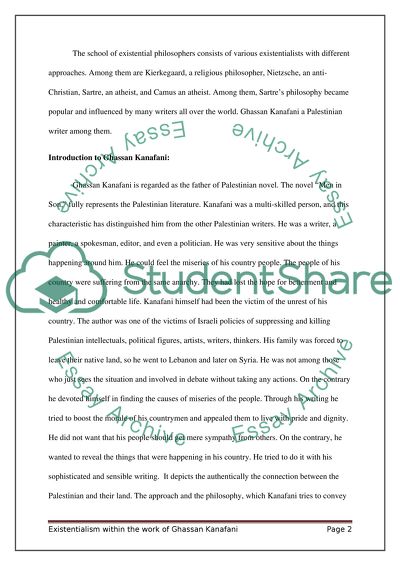Cite this document
(“Existentialism within the work of Ghassan Kanafani Essay”, n.d.)
Existentialism within the work of Ghassan Kanafani Essay. Retrieved from https://studentshare.org/literature/1403194-existentialism-within-the-work-of-ghassan-kanafani
Existentialism within the work of Ghassan Kanafani Essay. Retrieved from https://studentshare.org/literature/1403194-existentialism-within-the-work-of-ghassan-kanafani
(Existentialism Within the Work of Ghassan Kanafani Essay)
Existentialism Within the Work of Ghassan Kanafani Essay. https://studentshare.org/literature/1403194-existentialism-within-the-work-of-ghassan-kanafani.
Existentialism Within the Work of Ghassan Kanafani Essay. https://studentshare.org/literature/1403194-existentialism-within-the-work-of-ghassan-kanafani.
“Existentialism Within the Work of Ghassan Kanafani Essay”, n.d. https://studentshare.org/literature/1403194-existentialism-within-the-work-of-ghassan-kanafani.


